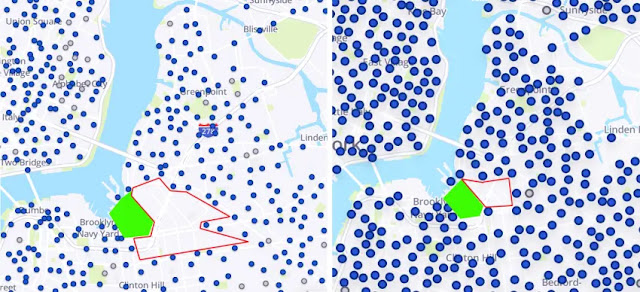Perhaps the most prominent example is Thanksgiving. For decades, the day after, dubbed "Black Friday", has been an occasion for sales that mark the beginning of the Christmas shopping season. In recent years, however, large department stores have been opening--and holding their sales--on Thanksgiving Day itself.
This day--Presidents' Day--is no different. While other holidays feature other kinds of bargain bonanzas (e.g., spring clothing and bedding on Memorial Day), this holiday is seen as the beginning of the automobile-buying season, and dealerships offer deals to entice consumers into buying new cars outright or trading in the ones they already have.
How did presidents come to be associated with cars? (Well, Ford Motor Company does have a line called Lincoln!) To answer that question, we have to look at the origins of this holiday. During my childhood, schools were closed on the 12th and 22nd of February, in honor of Abraham Lincoln's and George Washington's birthdays, respectively. In 1971, Congress passed the Uniform Holidays Act, which moved the dates of certain festivities to Mondays. At that time, Lincoln's and Washington's days were combined into one holiday, which falls on the third Monday of February.
Before the merger, if you will, auto sales were held on Washington's Birthday, which was seen as the beginning of the auto-buying season. That tradition dates to the early twentieth century, when automobiles first began to shape the landscape and culture of this nation. It has, however, roots in yet another kind of sale held on the same date.
If you've been reading this blog, you know that the bicycle is, in essence, the predecessor of the automobile. Some of the early auto manufacturers and designers had been in the bike business, much as the Wright Brothers were at the time they made their flight. So, it should come as no surprise that bicycle-buying (and, in some locales, -riding and -racing) season began on the 22nd of February. Bicycle dealers usually debuted or featured new models on that date and offered special deals. Many also had parties and even held or sponsored races, even in such locales as Boston which were as likely as not to have snow on their streets at that time of year.
 |
| From Green Fleet Messengers |
As an article on the Atlantic Monthly website relates, some people were not happy that "crass commercialism" sullied the occasion of the birth of our first President. Some of them pointed out, rightly, that there really was no reason to associate two-wheelers with "The Father of Our Country" because it's unlikely that he rode anything resembling a bicycle. My guess is that the date was chosen because it's near the end of February and Spring is so close that people can practically taste it, if you'll indulge me in a cliche. And, to be fair, there are parts of the US where the weather is already spring-like by that time.
By the turn of the century, bicycles were becoming less popular as the motorcycle and, later, automobiles, seized e public's consciousness. As bicycles are again becoming more popular, wouldn't it be interesting if the old tradition of bicycle sales was revived for Presidents' Day?
















